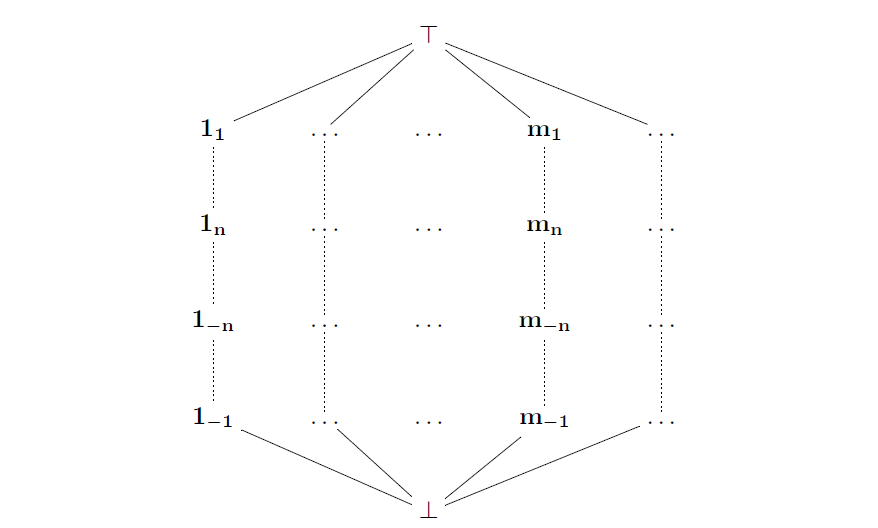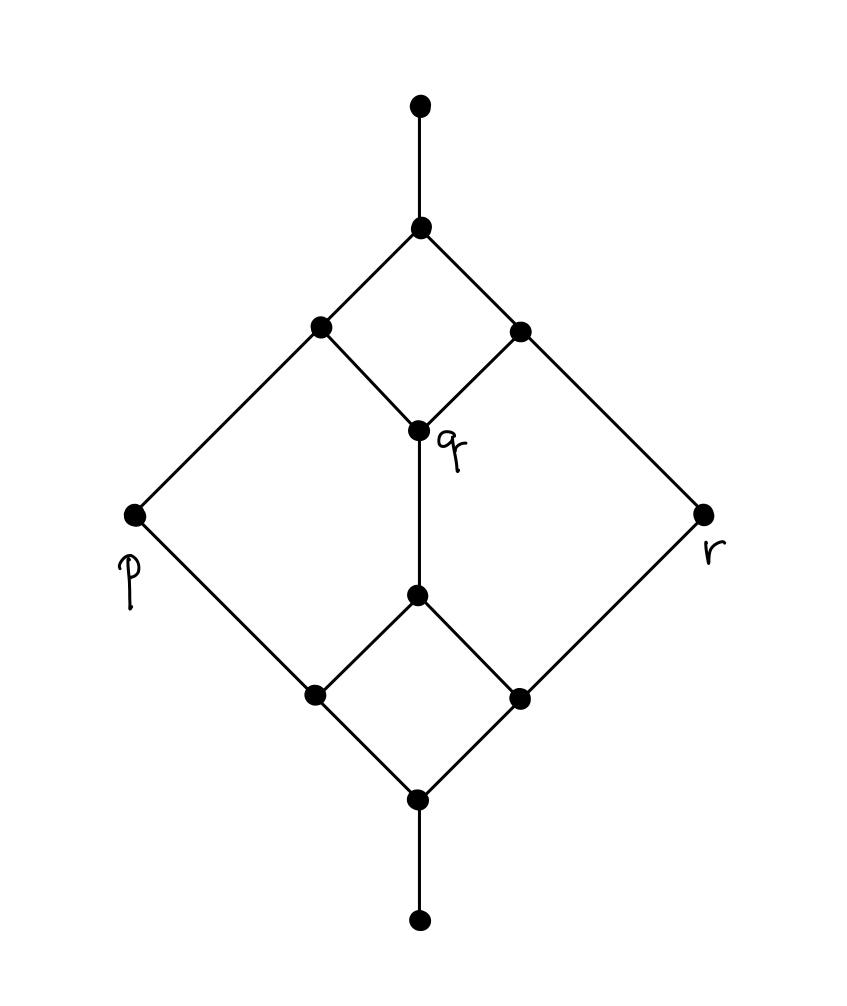Call a lattice negation $\neg$ proper de Morgan negation iff it satisfies the following conditions.
- $\neg\neg a=a$.
- $\neg(a\vee b)=\neg a\wedge\neg b$ and $\neg(a\wedge b)=\neg a\vee\neg b$.
- $a\leqslant b\Leftrightarrow\neg b\leqslant\neg a$.
- If $a\vee\neg a=\top$, then $a\in\{\top,\bot\}$.
Consider now the following lattice and call it $\mathbf{M}^{\omega\omega^*}_{\omega}$. In this lattice, there are $\omega$ chains each of which is order-isomorphic to $\omega+\omega^*$ with $\omega^*=\langle\ldots,n,\ldots,0\rangle$.
It seems that if $\neg\mathbf{i_j}=\mathbf{i_{-j}}$, the negation is a proper de Morgan one.
The question now is whether the following statement holds.
Let $\phi$ and $\chi$ be propositional formulas over $\{\neg,\wedge,\vee\}$. Define $v_{\mathfrak{L}}$ (a valuation) as a function from the set of propositional variables to the underlying set of lattice $\mathfrak{L}$ and extend it to complex formulas in a straightforward way.
Say that $\phi$ entails $\chi$ in $\mathfrak{L}$ ($\phi\vDash\chi$) iff for any $v_{\mathfrak{L}}$: $v_{\mathfrak{L}}(\phi)\leqslant v_{\mathfrak{L}}(\chi)$.
Then for any bounded lattice $\mathfrak{L}$ with a proper de Morgan negation the following holds $$\phi\nvDash_{\mathfrak{L}}\chi\Rightarrow\phi\nvDash_{\mathbf{M}^{\omega\omega^*}_{\omega}}\chi$$
At first, it seemed correct to me and I (unsuccessfully) tried to prove it as follows.
Consider a valuation $v$ in $\mathfrak{L}$ that refutes $\phi\vDash_{\mathfrak{L}}\chi$ and construct a valuation $v'$ in $\mathbf{M}^{\omega\omega^*}_{\omega}$ as follows.
- If $v(p)=\top,\bot$, then $v'(p)=\top,\bot$, respectively.
- If $v(p\vee q)=\top$, then $v'(p)$ and $v'(q)$ are incomparable w.r.t. order on $\mathbf{M}^{\omega\omega^*}_{\omega}$.
- If $v(p)\leqslant v(q)$, then $v'(p)\leqslant v'(q)$.
And here begins the problem with the last case: $v(p)$ and $v(q)$ are incomparable in $\mathfrak{L}$ but $v(p\vee q)\neq\top$. It is impossible to find a valuation $v'$ on $\mathbf{M}^{\omega\omega^*}_{\omega}$ satisfying these conditions.
However, I don't understand whether it follows from here that the statement of the theorem fails.
As an aside, do I understand it correctly that in case the theorem is incorrect, it would likewise fail for the same lattice but with chains order-isomorphic to $\omega+1+\omega^*$, i.e. $\langle 1,\ldots,n,\ldots,0,\ldots,-n,\ldots,-1\rangle$?
Reposted from MSE: https://math.stackexchange.com/questions/3552688/a-canonical-bounded-lattice-with-proper-de-morgan-negation


